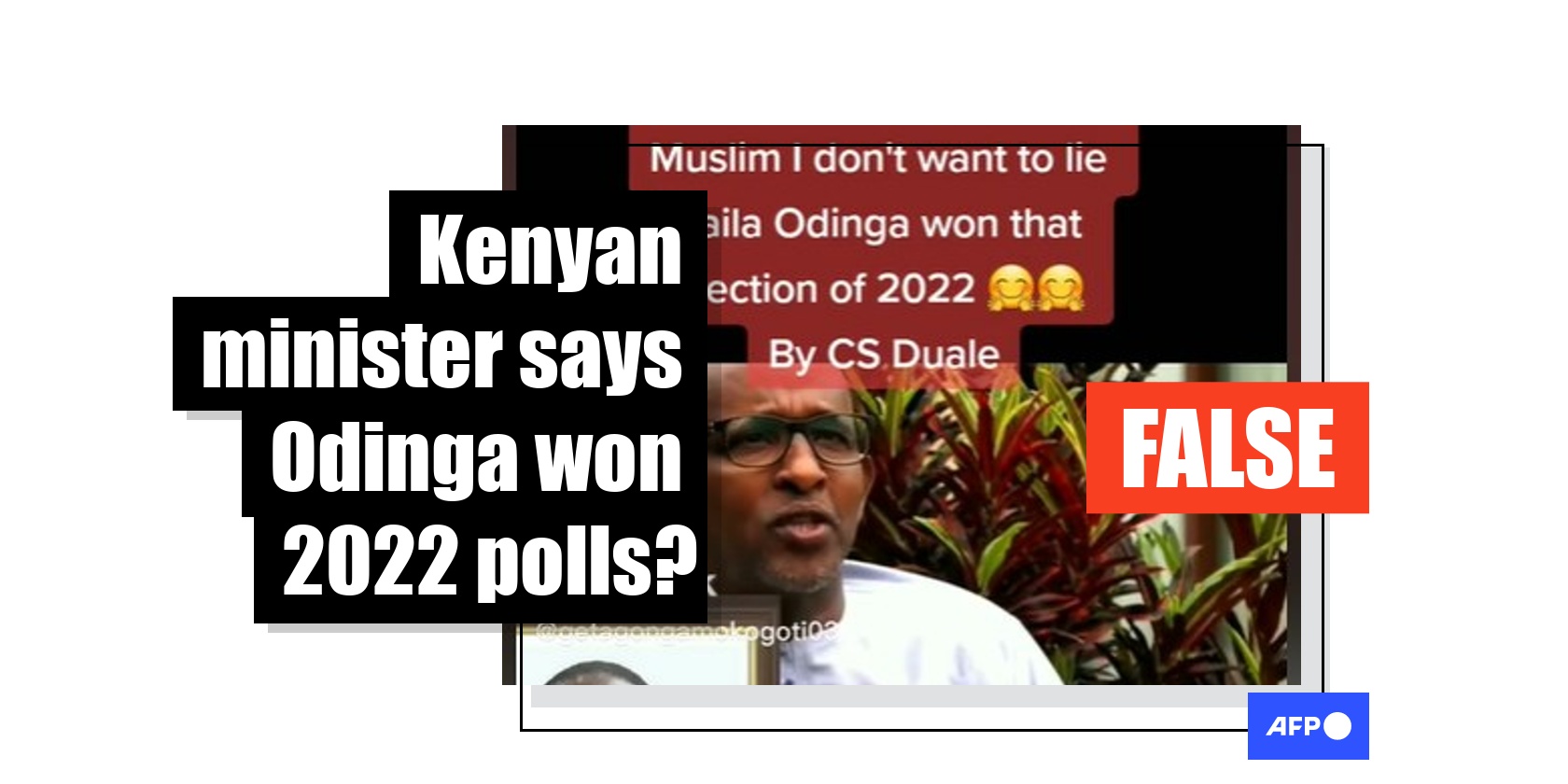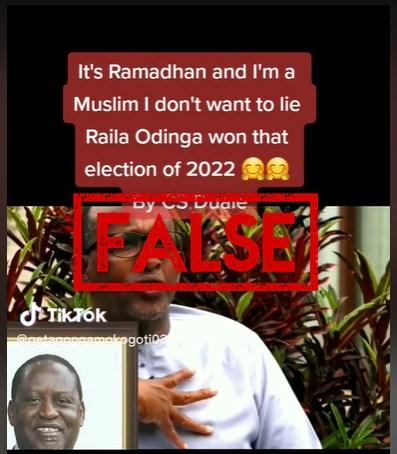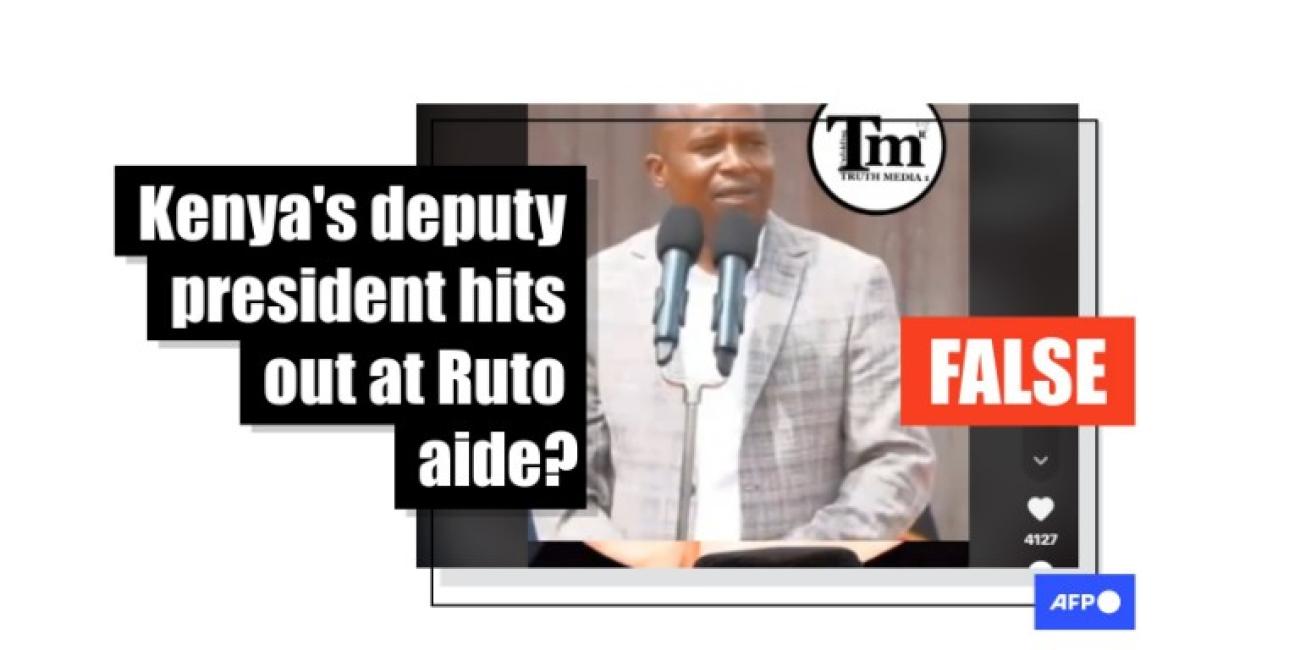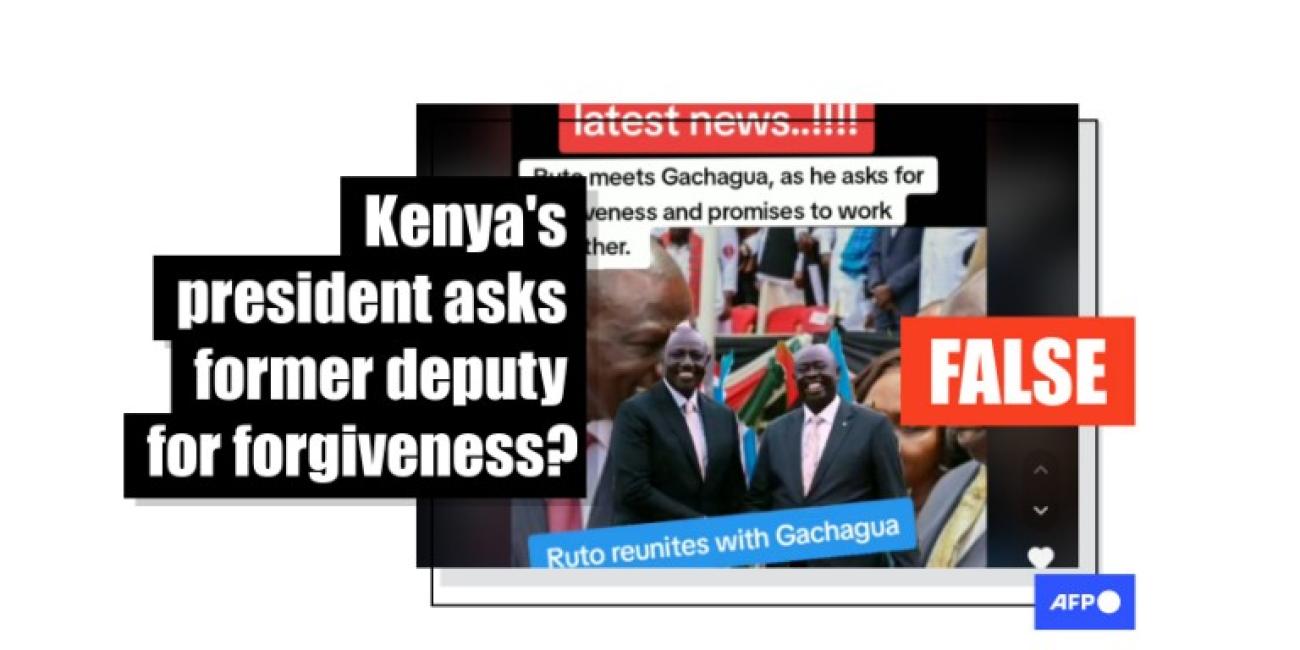
Doctored video falsely claims Kenyan minister said opposition leader won 2022 election
- This article is more than two years old.
- Published on May 11, 2023 at 14:45
- 3 min read
- By James OKONG'O, AFP Kenya
The clip was published on TikTok on March 30, 2023.
“It’s Ramadhan and I’m a Muslim I don’t want to lie. Raila Odinga won that election of 2022. By CS Duale (sic),” reads text placed on top of the footage.
In the 20-second-long clip, Duale appears to say: “And I am a Muslim I don’t want to lie. Raila Odinga won that election of two thousand … [inaudible]. Through the action of the IEBC, the difference was about 200,000 votes when really proper tallying was done. But you can win … [inaudible] … the constitution. The 50 plus 1 margin ... [cuts off].”

The IEBC is Kenya’s electoral body, the Independent Electoral and Boundaries Commission.
The clip was also shared on Facebook in April 2023.
The reference to Ramadan appears to indicate that the clip was made during this year's Muslim holy month, which fell between March 23 and April 2, 2023.
The 2022 presidential vote referred to in the clip’s text saw Odinga losing to Ruto by a margin of about 233,000 votes. Since then, tensions have been rising between the two politicians.
In February 2023, Odinga gave Ruto an ultimatum (archived here) to address alleged fraud in last year's election and tackle Kenya's rising cost of living. He also demanded a halt to the process of appointing new electoral commissioners.
After Ruto failed to meet his demands, Odinga spearheaded several marches. Following two weeks of deadly protests (archived here), Ruto and Odinga separately announced that they had agreed to parliamentary-led bipartisan negotiations (archived here) to resolve the tensions.
The opposition warned that protests would resume if it did not deem the talks meaningful.
But the clip does not show Duale saying that Odinga won the 2022 Kenyan vote.
Manipulated video
A keyword search with the words “Duale on Raila’s election win” led us to the source of the footage: a documentary on Kenya’s political divisions. It was published in 2021 on the YouTube page “Kenyan Historian”, which is run by Kenyan journalist Enock Sikolia.
The 46-minute documentary features interviews with several politicians including Duale, who was a member of parliament at the time.
The TikTok clip was created by cutting up and reordering various parts of the documentary, in which Duale speaks about Kenya’s 2007 elections – not last year’s vote, which had not yet taken place when the video was published.
In the documentary, Duale mentions the 200,000 vote margin, but in reference to the 2007 polls when Kibaki garnered 4,584,721 votes against Odinga’s 4,352,993 votes (archived here).
At minute 34’32”, he says: “The difference was about 200,000 votes when really proper tallying was done. But you could win at that time, we were under the old constitution and the 50 plus one margin was not there … So, and I am a Muslim I do not want to lie, Raila Odinga won that election of 2007.”
At the time, the country’s constitution did not require a presidential winner to garner 50 percent of the total cast votes plus one, as with the current constitution promulgated in 2010 (archived here).
In the documentary, Duale clearly says that “Raila Odinga won that election of 2007” (see minute 34’55”), but in the clip, the phrase “and seven” is inaudible, leaving only “two thousand…”.
He also mentioned the IEBC in the documentary (see minute 36’48”), but in a different context, referring to violence around the 2007 election. In the clip, the phrase “through the actions of the IEBC” was cut and then pasted before the phrase “the difference was about 200,000 votes when really proper tallying was done”.
Sikolia, who produced the documentary, confirmed to AFP Fact Check that his footage had been doctored in the clip shared on TikTok.
“We were talking about the 2007 election, but someone has tampered with the clip to sell their own agenda,” he said. “The video on social media misrepresents what was said ... and the date of publishing of the story is September 2021, several months before the 2022 elections.”
Copyright © AFP 2017-2026. Any commercial use of this content requires a subscription. Click here to find out more.
Is there content that you would like AFP to fact-check? Get in touch.
Contact us




